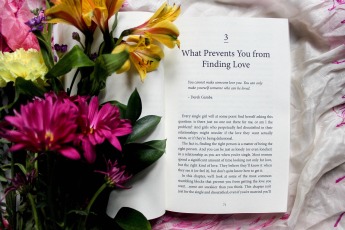Writing a book is hard. People spend years, decades, writing the stories that call to them, that take them away from reality and bring them to worlds of fantasy, subterfuge and romance. And while we may all struggle and excel at various elements of the process, outlining, characterization, world-building, no one would ever call writing a book easy.
Think about the book you are writing. Think about the book you want to write. Picture it in your mind, the characters, the setting, the themes, the mood. Is it gritty? Is it lush? Is it joyful? Find yourself in that place, that world, surrounded by those characters. Now, answer this question in one sentence.
What is your book about?
I don’t meant the characters. Don’t even begin on them. I don’t mean the world. That’s setting, not plot. I don’t even really mean the plot. No, what is the book about?
The world at large has narrowed down stories to the seven types of conflict:
- Man vs. self
- Man vs. human
- Man vs. nature
- Man vs. environment
- Man vs. technology (machine)
- Man vs. supernatural
- Man vs. god
Christopher Booker, in The Seven Basic Plots: Why We Tell Stories tells a variation of that, with the stories being:
- Overcoming the monster
- Rags to Riches
- The Quest
- Voyage and Return
- Comedy
- Tragedy
- Rebirth
Before we get back to your story, consider some of the classic or famous novels. Practice bringing them down to their most basic elements.
Young woman must overcome internalized beliefs about class and money to find true love.
Young couple fall prey to forbidden love at first sight in cautionary tale.
Man reinvents himself, only to learn that there will always be prejudices in the world and that you cannot make someone love you.
If you guessed Pride and Prejudice, Romeo and Juliet and Great Gatsby, you’d be right. If you didn’t, that’s okay. For this exercise, we have stripped away the non-essentials, names, titles, circumstances, to find the most bare elements of the book. Love, internalized beliefs, prejudices. Look over the list of conflicts, internal and external, as you move forward with your one sentence story, because at the crux, story is conflict and resolution – or lack thereof.
Okay, why? Why do we take 100,000 words or 200,000 words, or even a short story, and narrow it down to such an incredibly basic idea, something that could even be mistaken for another book? Why strip our hard work of everything that makes it unique, special and important?

Because this will help you write your book.
This one sentence– write it down. Tape it to the wall. Copy it to the first page of your book. This one sentence is your book. This is the sentence that you will come back to when your characters are knee-deep in a river in the middle of your fantasy quest and you don’t know how to write the next scene. This is the sentence you will come back to when your character is sharing their tragic childhood and you have to decide the sticking points of why this matters to the plot. This sentence will ultimately dictate every single thing about your book.
 Breathe. You can change it. If you went into your novel thinking Robin Hood and came out thinking Men in Tights, you can rewrite the sentence. In fact, there’s a good chance you will. After all, we don’t know what our stories are going to be until we write them. But you need the sentence. That one sentence is your big picture, your image on the back of the puzzle box when you spend your day hunched over thousands of individual squiggles and lines, trying to fit them all together.
Breathe. You can change it. If you went into your novel thinking Robin Hood and came out thinking Men in Tights, you can rewrite the sentence. In fact, there’s a good chance you will. After all, we don’t know what our stories are going to be until we write them. But you need the sentence. That one sentence is your big picture, your image on the back of the puzzle box when you spend your day hunched over thousands of individual squiggles and lines, trying to fit them all together.
You don’t need to be writing an epic for this to work. Write it for your short story. Write it for your essay. Write it for your article. Find the it, the thesis for lack of a better world, the element of your story that drives all the gears and turns all the levers.
You may not need it now. Part of you is probably scoffing and thinking I’m full of crap. But there will be a point when you don’t know what the next step in the story is. You don’t know how the conflict can escalate, how the resolution can unfold. Climb out of the trenches, wipe the dust of characterization and setting off your pants, and look down at the bigger picture, the spread landscape, the half-completed project.
Let your sentence be your guide.
Because no, writing is a book isn’t easy. If you know what’s good for ya, you’ll take all the help you can get. ♦
Great advice!
LikeLike